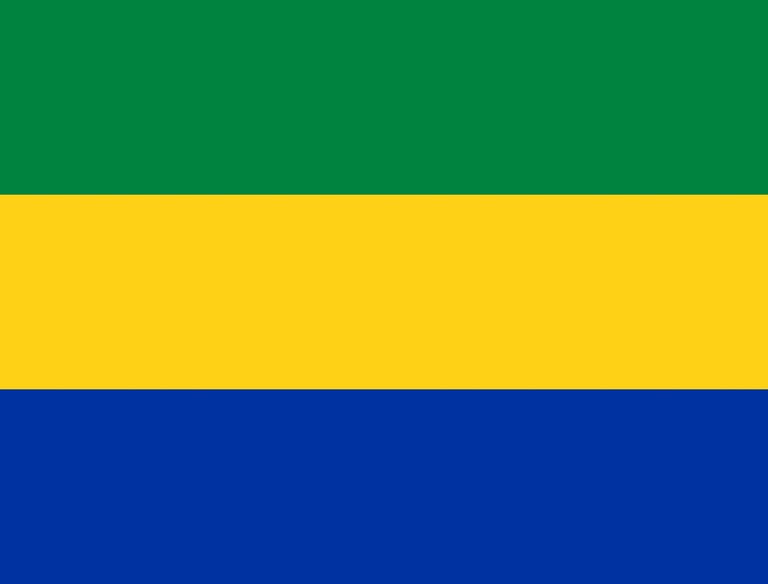Gabon
From Wikipedia


The Gabonese Republic, is a country on the Atlantic coast of Central Africa, on the equator, bordered by Equatorial Guinea to the northwest, Cameroon to the north, the Republic of the Congo on the east and south, and the Gulf of Guinea to the west. It has an area of 270,000 square kilometres (100,000 sq mi) and a population of 2.3 million people. There are coastal plains, mountains (the Cristal Mountains and the Chaillu Massif in the centre), and a savanna in the east. Libreville is the country's capital and largest city.
Gabon's original inhabitants were the pygmy peoples. Beginning in the 14th century, Bantu migrants began settling in the area as well. Since its independence from France in 1960, Gabon has had three presidents. In the 1990s, it introduced a multi-party system and a democratic constitution that aimed for a more transparent electoral process and reformed some governmental institutions. Despite this, the Gabonese Democratic Party (PDG) remained the dominant party until its removal from the 2023 Gabonese coup d'état.
Gabon is a developing country, ranking 123rd in the Human Development Index. It is one of the wealthiest countries in Africa in terms of per capita income; however, large parts of the population are very poor. Omar Bongo came to office in 1967 and created a dynasty, which stabilized its power through a clientist network, Françafrique.
The official language of Gabon is French, and Bantu ethnic groups constitute around 95% of the country's population. Christianity is the nation's predominant religion, practised by about 80% of the population. With petroleum and foreign private investment, it has the fourth highest HDI (after Mauritius, Seychelles, and South Africa) and the fifth highest GDP per capita (PPP) (after Seychelles, Mauritius, Equatorial Guinea, and Botswana) of any African nation. Gabon's nominal GDP per capita is $10,149 in 2023 according to OPEC.
Nassouh GSPI
Assessing global strength through various metrics.
contact us
gspi@nassouh.com
© 2025. Nassouh, All rights reserved.
